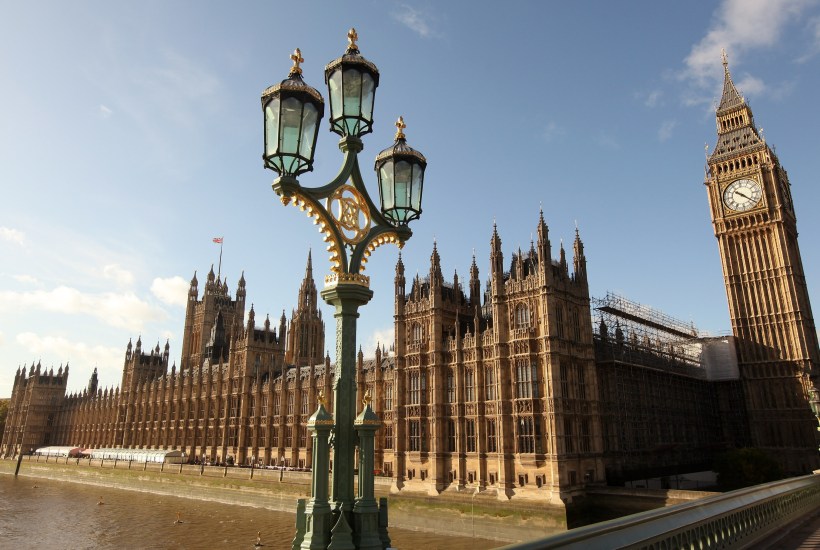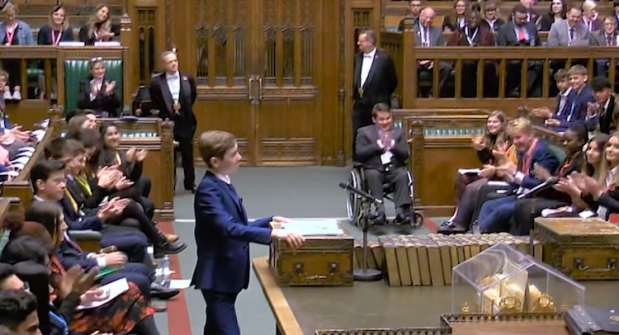For onlookers it is astonishing to see the British establishment, commentators and a majority of MPs try to scuttle the negotiating position of their own country in its most important negotiations in living memory. Admittedly Iceland, my small country, has had its own share of fifth column interventions in times of crises. Still, it is heart-breaking for a Britophile to watch a country that has been a world leader in diplomatic strategy for centuries – a country that has persevered through existential challenges and achieved incredible things – turn against its fundamental interests.
How can anyone imagine, or try to convince others, that negotiating, while stating that not accepting a deal would be illegal, can result in an acceptable outcome for the UK? It is self-evident that in those circumstances the EU will dictate terms. The EU has no reason to compromise. It is, however, quite likely that it might only offer a ‘deal’ bad enough to be unacceptable, locking the UK within the EU.
Would any of the people advocating this approach sell their own house by telling the buyer ‘I would like to get a good price but I am bound to say yes to whatever you offer me’?
Imagine the reaction if a civil servant had revealed the UK’s strategy and position to a foreign government in the country’s most vital negotiations. This week, Parliament has gone further. It has not only publicly dictated its country’s negotiating position, but sought to make it non-existent.
Faced with this situation your Prime Minister and his aides have shown amazing ingenuity. For chess fans there is hardly a game that rivals what is now happening in British politics.
The opposition and other Remainers seem to be concerned that Boris Johnson might want to hold an election on 31 October in order to secure Brexit. They worry that he is calling for an election on 15 October, but then will change the date to 31st. This is a misconception. Boris Johnson is a student of history and of politics. Winston Churchill’s experience in 1945 will not be lost on him. Voters usually do not vote to show appreciation for past achievements. They vote on what they might expect in future. Past achievements can help with credibility for a future agenda but elections are decided by what is to come, not by what has happened.
Boris will worry that a proportion of the electorate will, while being grateful to him for delivering Brexit, think to themselves ‘now Brexit is done, we can safely turn our attentions elsewhere’. Some of those people might feel that it is now safe to vote for Labour or the Liberals based on something they like in their agenda. After all, Churchill led the country through an unprecedented existential threat and grateful voters still turned their sights elsewhere.
Also, an election held soon after Brexit would be held in the shadow of endless stories about difficulties that will be blamed on leaving without a deal. With much of the media craving sensational stories about the effects of Brexit and feeling the need to reaffirm previous doomsday predictions, that is inevitable. So, expect endless drone videos of any lorries that are waiting in line, televised visits to supermarkets showing an empty shelf where the Brussel sprouts once were or interviews with people who couldn’t find the shoes they wanted and blaming it on Brexit.
By holding an election shortly before the conclusion of Brexit, Boris Johnson would be seen as the only hope of delivering the will of the people.
An election without finishing Brexit might, in the past, have been devastating for the Tories. But after the government’s strong start, and after it has managed to convince everyone that it intends to leave at the end of October, the same rules do not apply – especially when it seems that the government has been forced into an election in an attempt to thwart Brexit.
In such circumstances the Brexit party would have little chance of success and would be in danger of damaging its main objective. The party’s supporters would have the strongest of incentives to support the Tories. The Brexit party might still cause the Conservatives to lose a few seats, but the Tories could avoid the Brexit vote being split by making an electoral arrangement with the Brexit party. The Conservatives could even allow Nigel Farage to stand unimpeded in a safe seat (unless he is sent to Washington as ambassador).
Likewise, there is some speculation that the Tory ‘rebels’ will continue to block a general election to trap Boris Johnson, until after they have instructed the Prime Minister to seek an extension to Article 50. If they do so, they will have fallen into the elephant trap Tony Blair warned them about, a trap laid with the prorogation of Parliament. In chess terms Remainers might say it was a Queen’s sacrifice.
How will the Prime Minister deal with Parliament’s extension bill? The EU might decide to unilaterally offer an extension, presumably in a tweet from Donald Tusk. Why should Boris Johnson accept any such offer? He has already said that he won’t do so. He could claim that conditions haven’t been met or point to the fact that contrasting laws and the overriding democratic mandate provided by the referendum prevent him from accepting an extension. After all, it is the role of the executive to represent voters in dealing with the EU.
If the Prime Minister doesn’t do what the ‘rebels’ and opposition in Parliament are telling him to do there will no doubt be renewed outrage. But how can you call a PM a tin pot dictator and claim that he is in breach of the law if you are not willing to bring down his government?
Boris Johnson has now created for himself and his government the position which the previous government should have created for the UK in its dealings with the EU three years ago. He has made it clear that he is not in a position to yield. In the game of chicken that is a very advantageous situation.
Remainers have been put in the situation that they are damned if they do and damned if they don’t bring down the government. Their best hope is now to do whatever they can to strengthen the Prime Minister’s position in dealing with the EU and pray that the Union will accept any deal that Boris Johnson finds acceptable.
David Gunnlaugsson is a former prime minister of Iceland.
Got something to add? Join the discussion and comment below.
Get 10 issues for just $10
Subscribe to The Spectator Australia today for the next 10 magazine issues, plus full online access, for just $10.




















Comments
Don't miss out
Join the conversation with other Spectator Australia readers. Subscribe to leave a comment.
SUBSCRIBEAlready a subscriber? Log in